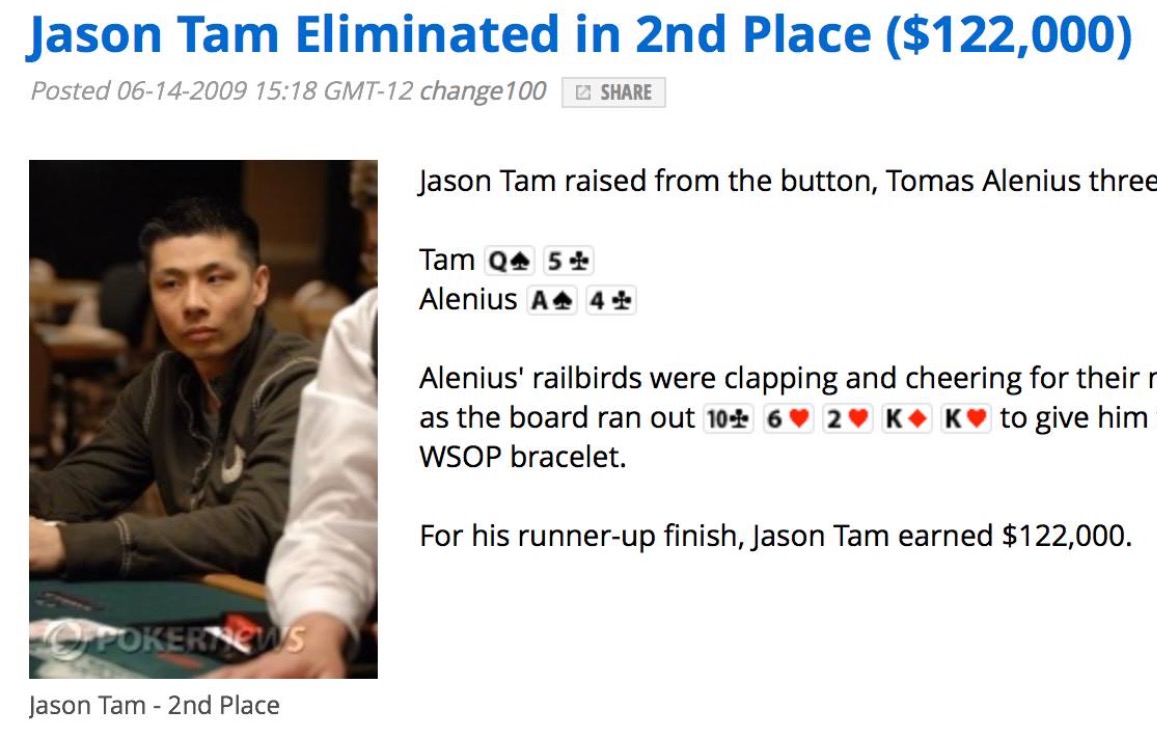By Jason Tam
What the? Is this guy really promoting gambling to further orthodontic business development? Isn’t it all luck? Let’s get this out of the way. Poker is a game of skill. There is certainly an element of luck, but in the long term, the right decisions will lead to success (i.e. profit). If everyone played the same number and a large sample size of hands (millions) everyone should start with a pair of aces the same amount of times. Those that profit are those that will win more when they have the aces, and lose less when their opponent has the aces.
Ivy League undergraduate programs and large Hedge Funds regularly bring poker theory into their classrooms and team building because of the similarities to daily life, with the latter even being known to hire employees based upon previous poker prowess. There are also many successful poker players who are highly educated in engineering and mathematics. The reason is because poker is like a mini game of business.
Let’s look at the following similarities:
Everyone begins with a fixed amount of resources from which they can build up.
- You can do the right things and still lose. You can do the wrong things and still win. However, in the long run, doing the right things will generally lead to profit while doing the wrong things will result in losses.
- Allowing strong positive or negative emotions can interfere with the proper decision-making process.
- Decisions have to be made with the best information available, which is often incomplete.
- If you do the same thing everyone else is doing, you will not be “the winner”.
- There is room for more than one party to profit.
- You always want to stay one step ahead to anticipate the moves of your opponents so you can build up a strategy to combat them, rather than act in a reactionary manner when it is too late.
- There are ways to accelerate knowledge with new technologies and portals and by finding mentors and learning from those who have experience.
- Computer programs and online scripts are making it easier and easier for the average person to learn how to play poker very well, reducing the distance between pros and amateurs. As orthodontists, we can all relate to this very well!
I could continue on and on with this list.
Apart from the financial gain of poker, it can provide amazing life experiences. I’ve managed to meet and play with some of the best players in the world (what other sport can you ever play with the pros you see on TV?). I’ve learned a lot from my conversations with Richard Brodie, who wrote Microsoft Word, hired my web developer from a friend that I met playing poker online, stayed in a house owned by Bette Midler, and I’ve gone through some of the most VIP experiences in Vegas and other cities. I find that many of them are much less conservative than I am, and they have taught me to stretch my comfort level. Oddly, poker players and orthodontists probably get along well because we share one glaring similarity: we both get compensated exceedingly well, for much less work than the average population, in amounts that would be deemed ridiculous by most.
To be clear, I’m not suggesting everyone take a trip to the nearest casino to play poker, but learning new skills in other areas of life, and meeting new people can often be instrumental in both personal and professional development. Good luck at the tables!


Though it’s been a few years since I’ve put any serious time into the game, after ~1.5-2million-ish logged hands you can’t really help but have poker’s theory infiltrate many of the decisions you make daily. The point you make about “If you do the same thing everyone else is doing, you will not be “the winner”.” is really good one.
Interestingly, in the field of orthodontics, I haven’t met anyone yet who has found the time to put into really learning the game while go through dental school, residency, etc., so are the first! It’s fun and refreshing to read a post of someone who has that background.
I’m curious how many others out there have similar experiences. I look forward to chatting with you sometime, Jason.
-Evan